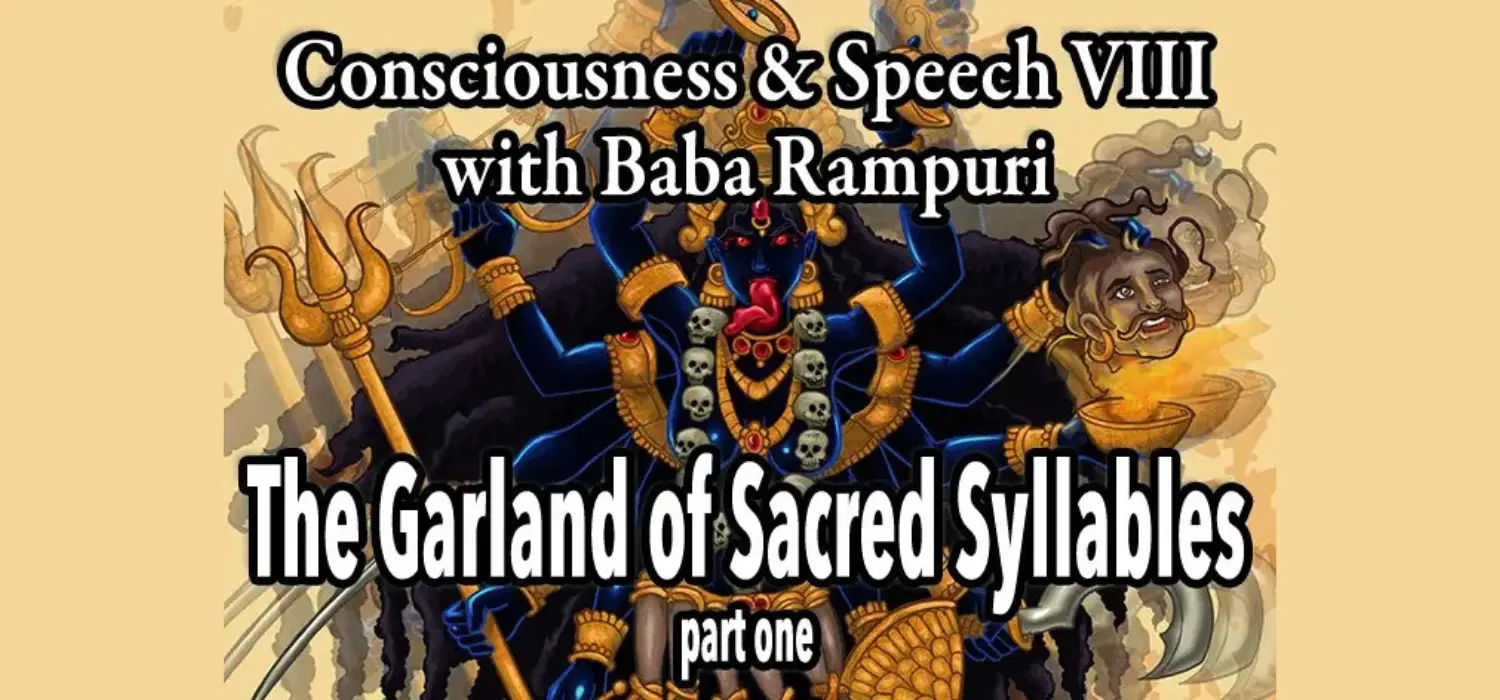
Garland of Sacred Syllables, VIII, part four
Sacred Speech Masterclass episode VIII
part 4 of 6 parts
hosted by Baba Rampuri
![]()
The Garland of Skulls
Now religion is a very tricky word, because really has, it means different things to different people…
![]()

![]()
Now religion is a very tricky word, because really has, it means different things to different people. I would say that in general what it means to the academy and scholars and sort of society at large in these post-Enlightenment times is something that has a deity, a doctrine, and a printed text, so we can easily see that the religions of the book, Christianity, Judaism, & Islam, conform to this type of religious model.
When it comes to Bharat, we have a major problem here, because there are many, many deities, hundreds of millions they say, there are many, many doctrines, and of course there’s many, many texts, some of which are printed and published.
So that in establishing an Indian religion as a religion that conforms to categories of modern Western thinking, the academy, there is some construction that has to be done on top of the phenomena itself. There has to be some selection, somebody has to decide who is the deity, among so many deities, somebody has to decide what is the doctrine among so many doctrines, and somebody has got to decide which texts are appropriate and which texts are not which represent the thinking and the practices of the people of the religion.
So that we can really see by this that actually when we speak about religion we are speaking about a few religions, namely, Christianity, Islam and Judaism, and we’re not really address the phenomena of the religions of India, and in my opinion, I would include Buddhism in that, because they have a very different nature. I would say in fact, my experience is that when the rural people in India speak about Dharm or Dharma, which is translated as religion, they are not referring to belief systems, doctrines or texts, but they are referring to what we refer to in the West as natural science. So this Sanatan Dharma, what traditionally they call what they refer to now as Hinduism, is not thought of as a set of beliefs and doctrines but is thought of as science, as the knowledge of the world and the cosmos. So there are very big differences here. And when you take speech and you look at the work that Panini and Patanjali in his Yoga Sutras and the Mahābhāṣya and Bhartrihari and Abhinava Gupta in his tantras, the work that they did is hardly religious, in nature, according to those Western academic categories, and considerably more scientific, in a sense, though I am not make this claim that there is science, because science is, there are other attributes to science, but when we think about how these people were dealing with this area of knowledge it is more similar to how linguists and cognitive scientists and mathematicians and computer linguists, computer programmers are dealing with this kind of knowledge than the way that clerics or priests or you know anybody involved on the religious side of things are dealing with this.